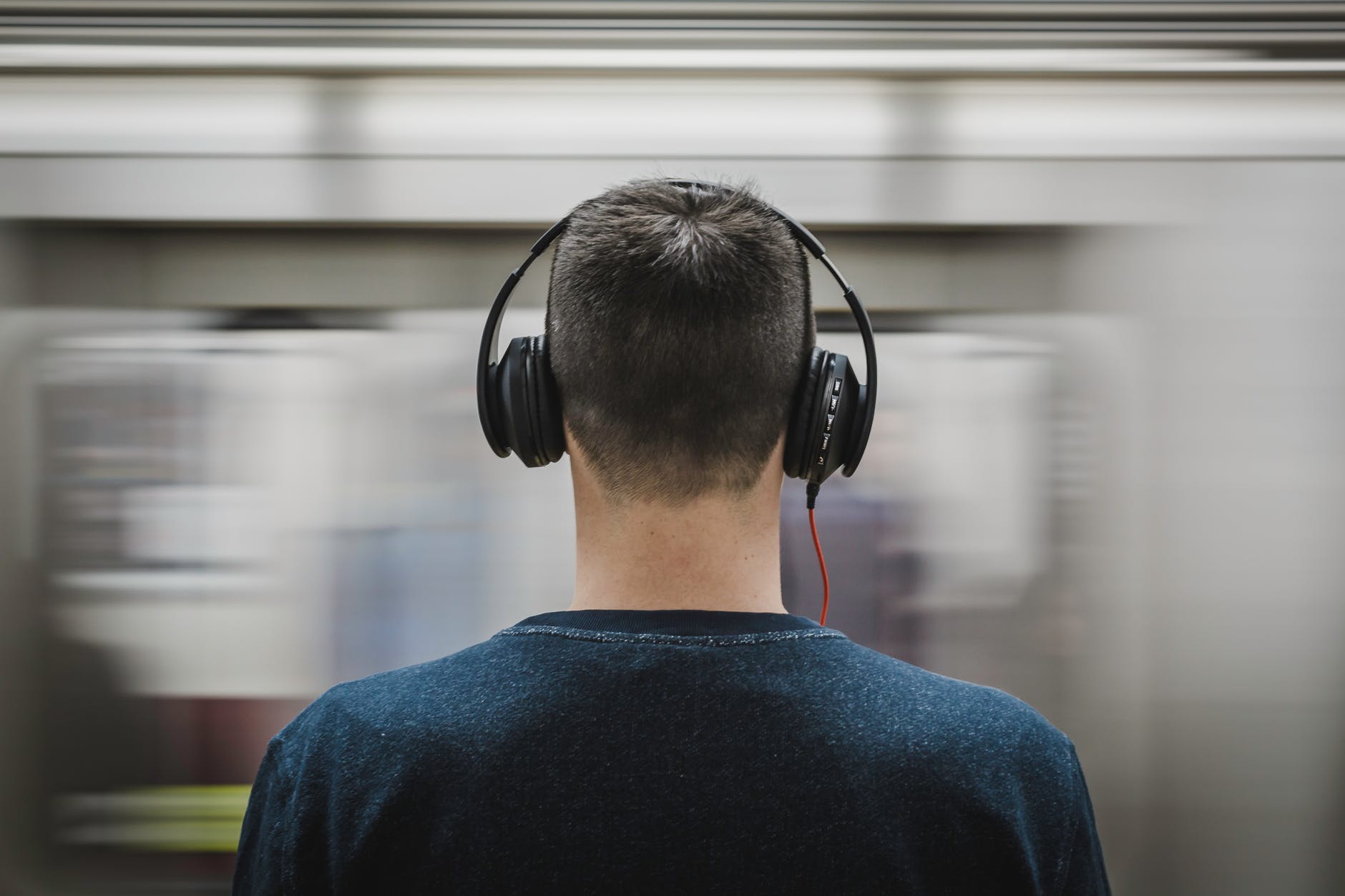8 a.m. Roll out of bed. Stretch. Wash face. Brush teeth. Put on some semblance of an outfit. Grab three things — I.D., keys and a set of sleek, black headphones. Turn on a playlist or a podcast. Start day.
11 p.m. Take off headphones. Turn off lights. Get into bed.
8 a.m. Repeat.
According to an article by Digital Music News, Americans spend an average of 151 minutes per day listening to music. 151 minutes. 2.5 hours. Just over 10% of your day.
To be fair, that’s not true of everyone. But think about the other ways you spend your time (that is, when you’re not stressing over schoolwork and extracurriculars).
A Nielsen Report showed that in 2018, adults spent an average of about six hours per day watching videos. So even if you’re not binging “The Witcher,” those five-minute YouTube clips can start to add up.
The same report informed that American adults “spend over 11 hours per day listening to, watching, reading or generally interacting with media.” Social media, video games, internet surfing — it all adds up.
But again, that might not be true of you. You might be someone who only uses headphones to block out distractions when doing your homework. You might be very self-disciplined about using your computer for work and only looking at social media once or twice a day. You might only watch TV when you’re working out on the elliptical.
However, even if you’ve managed to avoid addiction to all of those things, there is still something. Something in your life that you turn to avoid and alleviate stress. A good book, a cup of tea or coffee, a snack, a quiet drive, a brainstorming session or maybe even a workout.
And none of these things, technological or otherwise, are bad in and of themselves. It’s good to take time to relax, and it’s good to know what relaxes you. The potential danger here isn’t so much relaxation as it is escapism.
Escapism is defined by Merriam-Webster as the “habitual diversion of the mind to purely imaginative activity or entertainment as an escape from reality or routine,” but the term doesn’t just apply to imagined daydreams or escape into entertaining media. Escapism, in a broader sense, is everything we do to distract ourselves from the unsatisfactory nature of our lives.
And I’m as guilty of this as anyone. Up until recently, that play-by-play at the beginning of the article was my daily life. If there are two things I love, it’s music and stories. So if I’m eating alone or crossing campus or doing my laundry, why not listen to something? Why not fill the empty space? Up until recently, I did. I filled the space with podcasts, music and a constant stream of daydreams.
However, in light of Lent, I decided it was time to make a change. I didn’t give up my headphones or my music or my podcasts entirely. Instead, I made a compromise. For this season of Lent, I’m only going to use my headphones when I need them — like if I’m working out or need to block out noise while studying. I still listen to music and podcasts for fun, but only in the privacy of my dorm (and not when I’m in the middle of writing or doing homework).
But I didn’t just make this change because of Lent. For a while now, I’ve had a hard time focusing in church and chapel. Because I use music to escape and daydream in my own life, I have a hard time focusing during worship. And when the music’s off, I either think about what’s on my to-do-list or about stories I’ve watched or read or want to write.
College (and life in general) isn’t easy. And, in my experience, it’s tempting to turn myself off to the outside world as soon as I’m able, to escape between classes and meetings into any source of relief that I can find. But what does that say about my faith?
We may have heard Psalm 118:24 a million times — “This is the day that the Lord has made; we will rejoice and be glad in it.” And to be sure, that’s no easy task, but it is what we are called to do. And escapism? Escapism is fleeing into something that either isn’t real or won’t last. It’s the exact opposite of rejoicing and being glad in what God has given us.
I’m not asking you to give anything up or to stop doing the things that relax you. But I would ask you to do one thing. The next time life is getting to be too much, and you’re about to reach for your escape, hold back. Pray about it. After all, you’re in the hands of the God who created the universe. He’s not going to leave you in a situation He can’t deliver you from.
An escape is only useful if you believe you’re in danger. If you know you’re safe, you truly don’t need it.


